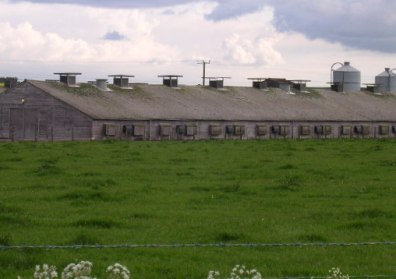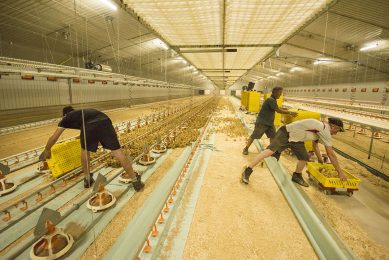UK farm incomes remain resilient

Farm incomes have remained resilient over the past 12 months according to new figures published by Defra, reports the National Farmer’s Union.
Total Income from Farming (TIFF results)* show a decline of 6.7% although the NFU say this is far from a return to the low levels of income seen in the decade up to 2008. Overall, income from farming per full time equivalent is estimated to have fallen by 8.7% to £20,955. Incomes, especially in the grazing livestock sector, remain low compared to wider average household income of £30,000.
According to the report, Farm Business Income is forecast to increase in 2009/10 on specialist pig, specialist poultry, LFA and lowland grazing livestock and mixed farms. This reflects firmer prices for finished and store livestock combined with lower input costs. However, incomes on specialist cereal and general cropping farms are expected to fall as a reduced cropping area combined with lower average yields and prices led to a lower crop output. This drop in output was only partially offset by a fall in costs.
The NFU says that TIFF data for 2008 has been revised significantly to take account of increased data availability, impacting the value of cereal output and key agricultural costs in the accounts. The intra-year volatility in commodity and input prices clearly presents challenges for any data reliant on an element of forecasting, hence Defra’s revisions. The change between the revised 2008 figure and 2009 TIFF is in line with NFU expectations.
“For the second year in succession we have seen the beneficial impact of the weak pound on farm incomes. This has partially offset the decline in dairy and cereal commodity prices, increased the competitiveness of UK red meat and poultry and, more significantly, the value of farmers’ direct payments through SPS. Indeed, the increase in SPS has gone some way to making up for the 3.1% decline in output value across agriculture as a whole,” said NFU senior economics adviser Philip Bicknell.
“The reality is that if the single payment was removed completely, a large proportion of farming profit would be wiped out. This demonstrates the real challenge which is in generating profitable returns from food production, as well as the need for appropriate policy measures in the short to medium term,” he continued.
“Exchange rates will continue to play an important role in determining the fortunes of the farm sector in 2010. With improving commodity prospects, especially for the dairy sector, farm incomes are likely to remain resilient. Although costs fell by 1.2% according to the 2009 data, feed prices remain relatively strong while fuel costs appear to be on an upwards trend. Margins will also come under increasing pressure from regulatory compliance, whether that’s EID impacting sheep producers or the poultry industry preparing for the Laying Hens Directive.”
* TIFF measures the performance of the whole agricultural sector during the last calendar year.
Source: National Farmers’ Union













